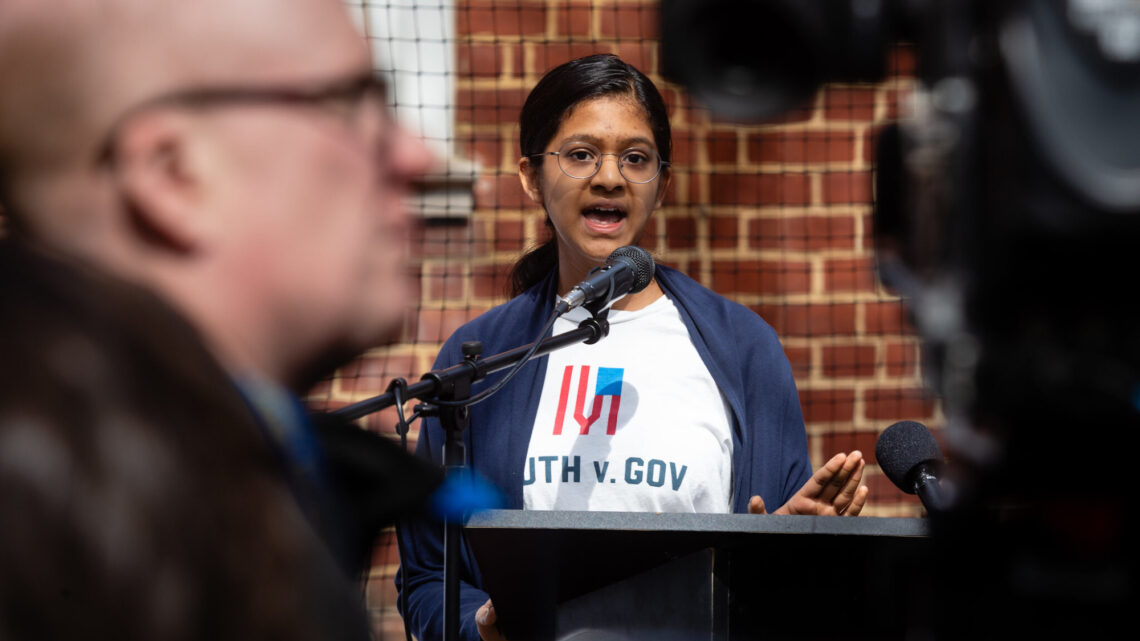Educate Others

Educating others is an environmental action. In fact, action should start with education. Understanding the issue, the evidence, and different perspectives can equip people to choose the most effective type of action.
Educating others on an issue, like climate change, can change people’s behaviors. A study showed that educating just 16% of high school students in high- and middle-income countries on climate change can result in a large-scale reduction in carbon dioxide emissions. Understanding your connection to an issue and how you can make a difference can change personal behaviors.
Youth can also influence others. A study found that a parent’s concern about climate change increased after their kid was involved in a climate change education program. Students were sharing knowledge with their parents and changing opinions! Youth can also influence others to act. When girl scouts participated in a program to learn how to reduce their energy use, their parents ended up increasing their energy-saving behaviors too.
Educating others can be a powerful action that gets more people involved in a solution.
Connecting to Issue Investigation
Any environmental issue investigation can lead to educating others on the issue. Students can synthesize what they learn during their investigations and choose the right format for sharing based on the audience.
For those working towards green school awards, this action can help advance environmental and sustainability education by giving students the opportunity to reflect and process what they have learned in order to share it with others—learning through teaching!
Facilitating Student Action
Students should continue to have opportunities to share ideas and opinions throughout the process of identifying, planning, and implementing action. Listed here are just a few ways students can stay engaged while working on this solution—but there are many more! The complexity of each activity/task can be adjusted for each grade level.
Educate - students can educate others on the results of their investigation to inform them of local environmental issues and possible solutions. Depending on the age of students, this can take many forms from pamphlets, letters, skits, signs, presentations, and posters.
Advocate - education campaigns can include an element of advocacy where students recommend solutions to the environmental issue that can occur at the individual, community, and/or government level.
Monitor - students can monitor the environmental issue and/or what people know or think about the issue. Their data can be shared with others and also used to inform what should be included in an education campaign.
Share and Celebrate - students can educate others by celebrating their work! This can take the form of writing articles, press releases or inviting reporters from the school paper and local news agencies.
Educate Others Resources
The Civic Action Project Toolkit guides students through a step-by-step process for civic action. Many of the tips are relevant to an education campaign like: Create a PSA, Use Social Media, Create Flyers, and Public Speaking.
Educating others can also include students educating other students in different classrooms, grades, or schools. This article on peer-to-peer learning provides examples of activities that promote this type of education.
